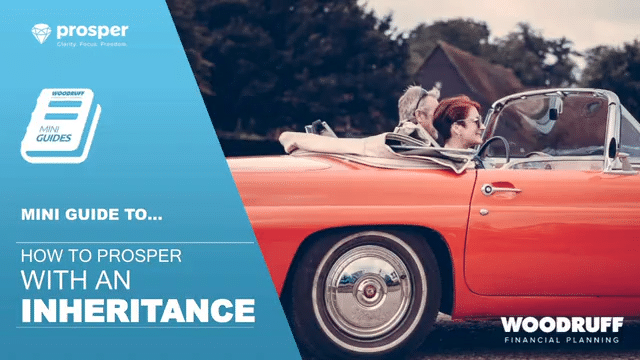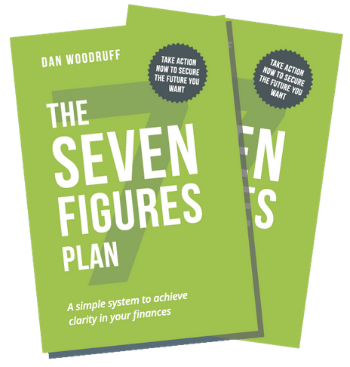WHAT HAPPENS WHEN SOMEONE DIES?
The death of a loved-one is always a shock, and you will have questions about how to deal with the practicalities of the money and assets. This article explains what happens when someone dies. This article explains the position in England and Wales.
Key points:
- Is there a will?
- Registering the death
- Informing financial institutions
- Applying for probate
- Tax on death
- What happens when someone dies to specific assets?
- What should you do if you are a beneficiary under a will?
- Next steps and action points
Is there a will?
A will sets out a person’s wishes for what should happen to their assets after their death. Most of their assets (called their Estate) will be distributed according to this document, but some assets will pass outside of their Estate. To find out more, read our ultimate guide to why you should make a will.
If the deceased person set up a valid will they will have appointed Executors, who are their personal representatives after their death. The Executors are legally responsible to distribute the Estate according to the terms of the will.
If there is no will then the deceased has died intestate. This means that there is no will, and their assets will be distributed according to a set of rules according to the law.
Executors might not receive the proceeds under the will, although they often do. If you are a beneficiary then you should also start to think about the financial implications of the will on your own position. Read more in our guide to receiving an inheritance.
Action points
- Find the will, and notify all Executors
- Understand the provisions of the will
Registering the death
The first thing the family should do is to register the death. Typically this should be done within 5 days of the death. Usually a family member will register the death by visiting the local Registry Office. You need to take the medical certificate showing the cause of death, which has been signed by a doctor. If the cause of death is unexplained or sudden then the Coroner may need to be informed, which could start further proceedings such as an Inquest into the death. The Registry Office will help you with this.
Once the death has been registered the family will be issued with a Death Certificate. This is the legal document which can be used to set in motion the post-death processes with all financial institutions. It makes practical sense to obtain additional copies of the Death Certificate as you may need to deal with dozens of institutions.
Click here for a full list of information and documents required to register a death.
Action points
- Gather all the information and documents you need
- Make an appointment with the Registry Office
- Arrange the funeral
Informing financial institutions
You should now start to make a list of all suppliers, people the deceased owed money to, people who owed them money, and all their assets.
You can now use the Death Certificate to prove to all creditors, debtors, and financial institutions that the deceased person has died. This will effectively freeze all accounts from the date of death. Any contracts with the deceased will cease, and this will mean that the institutions will only deal with the personal representatives unless they sign documents to permit advisers to issue instructions.
For example, when we deal with the estate of a single client, we need to make a separate agreement with the Executors of the will so that we can assist in the administration of the estate. If the assets are jointly held, then they typically pass to the survivor outside of the Estate, and no further agreements would be needed.
You can now
Action points
- Send the Death Certificate to each institution to register the deceased’s death
- Consider whether the Executors need further agreements in place to deal with advisers
Applying for probate
It is the responsibility of the personal representatives of the estate to calculate all the assets and debts of the deceased and to distribute proceeds properly to the beneficiaries once any debts and tax are paid. Remember that certain jointly held assets will not pass as part of the estate under the will. This might include life assurance, property, or financial accounts. Pensions tend to pass according to trusts and again tend to fall outside of the will.
Most estates require Probate to be issued if the value of assets is greater than £5,000 or there is land, property or shares. You need to obtain a Grant of Representation, which is official approval from the Probate Service to be able to be permitted to distribute the Estate to the beneficiaries of the will. Financial Institutions will not permit assets to be passed to beneficiaries unless they receive this document, although they may allow some withdrawal to pay inheritance tax or to pay for a funeral. Find out more about how to apply for Probate.
You can do this without any legal help, but the more complex the situation, the more likely that this would be sensible.
When you apply for Probate you will also need to complete the required inheritance tax forms, even if there is no tax owed. You must pay any tax due before you pay proceeds of the Estate to the beneficiaries.
You will need to keep records and final accounts with all financial institutions.
Action points
- Calculate all assets and liabilities of the deceased (see What happens to specific types of assets after death, below)
- Maintain appropriate records
- Contact the Probate Service to establish if you need a Grant or Representation
- Consider taking legal or financial advice
- Complete inheritance tax forms
- Pay all liabilities and tax due before you distribute the estate (see Tax on death, below)
Tax on death
You will need to pay the appropriate tax.
Income tax
If the deceased had any income tax liabilities, these will need to be settled before distribution of the estate.
Any income received by the estate will continue to pay income tax at basic rate (20%).
Any income passed to beneficiaries during the administration of an estate will need to be accounted for in the beneficiary’s tax return.
Capital gains tax
Happily, any capital gains made in the years prior to death are wiped out when a person dies. This means that the assets passed to beneficiaries will be free of tax. They will accrue capital gains tax on the own right from the date of death.
Inheritance tax
Inheritance tax needs to be paid before the Estate can be distributed. Each person pays inheritance tax on the total worldwide assets over £325,000. Married couples and civil partners can pass over their unused nil rate band (£325,000) to their surviving partner on death. If the deceased was a surviving partner in this way, they may have had £650,000 of assets free of inheritance tax. The remaining Estate is taxed at 40%. Inheritance tax is very complicated and you should seek further advice in this area.
Read more about inheritance tax here.
Action points
- Work out tax and pay any due before the deceased’s death
- Pay ongoing tax arising from income after death
- Work out any inheritance tax liability
What happens when someone dies to specific assets?
The exact position depends on the arrangements the deceased made before death, but set out below is the typical position. You may need further assistance from your advisers if you are unsure.
Joint accounts
If assets were held jointly, then these typically pass to the survivor on death outside of the provisions of the will. This might include property, land, bank accounts, National Savings and investment accounts. It is possible to split joint assets using a Tenancy in Common (typically done with property). If this is in place it would mean that the deceased’s share of the jointly held asset would pass according to their will.
General investment accounts and shares
Assets will be frozen until Probate has been issued. Any ongoing transactions at the date of death will continue. Interest and dividends will continue to be added to the account.
ISAs
ISAs cannot continue after death, so will be converted to cash and passed according to the will. If the deceased was married or in a civil partnership the ISA allowance on death can now be passed to the survivor.
Bank accounts and National Savings
Assets will be frozen until Probate has been issued. Any ongoing transactions at the date of death will continue. Interest will continue to be added to the account.
Premium bonds can continue to be held for up to 12 months after a person’s death, and will still take part in the prize draws.
Investment bonds
If the lives assured of the plan included people who are still alive, then the plan will continue and will pass to the survivors outside of the Estate and free of tax at that point. If the deceased was the sole life assured then the investment bond will be cashed in and this is a chargeable event for tax on the position of the deceased. Depending on the level of investment growth, then tax may be payable as part of the income of the deceased.
Pensions
Pensions death benefits tend to be written under a discretionary trust, following an Expression of wishes of the deceased. Usually, this means that the proceeds of the pension can be paid as a lump sum, free of tax, to the nominated beneficiaries outside of the will.
The position is different if the deceased was aged over 75. The lump sum will be taxed at 45% although new rules are due to be brought in for deaths after 6/4/2016.
Property
Property will pass under the will of the deceased unless it was jointly held as a joint tenancy. Any income will continue to be paid to the estate, and capital gains tax will not apply on death. Of course, if the property is the main asset, then this may need to be sold to pay tax and other bills.
Insurance
Sickness cover such as critical illness or income protection would cease on death.
Life assurance would pay out according to the terms of the policy. If the policy was written on a single life basis this may well pay out into the estate of the deceased, which could increase the inheritance tax bill. If the policy was written into a trust then the proceeds can be paid according to the trust without reference to the estate and the will. Inheritance tax is unlikely to be paid in this case.
Businesses
The position of the business depends on the legal status.
- Sole traderships
Sole traderships are wound up on death, and the assets distributed according to the deceased’s will. - Partnerships
Partnerships may also be wound up with the death of a partner. If there is a partnership agreement, then different arrangements may have been made. Without a partnership agreement, the partnership must be dissolved, which would mean the distribution of assets to the estate. - Limited Companies
When a shareholder dies the shares pass according to their will. The business may have specific agreements in place to enforce the purchase of the shares in this event, and this may be backed up with an insurance policy to pay the agreed price.
Trusts
Assets held in trusts will be affected according to the terms of the trust. For example, if the trust was an interest in possession trust, then the assets may pass in the deceased’s estate, or to alternative beneficiaries. With discretionary trusts, the interests of the deceased will cease.
Action points
- Work out the values at date of death
- Obtain all documents such as policy documents, share certificates, trust deeds etc.
- Understand whether the asset passes according to the will, or under separate rules
- Inform each financial institution, and send them the Death Certificate and Grant of representation
What should you do if you are a beneficiary under a will?
Receiving the assets of a loved one is both an opportunity and a responsibility. When you receive an inheritance this can change your life. We have produced a guide on How to maximise your inheritance opportunity.
What should you do next?
The process of managing the Estate of a deceased person can involve quite a lot of work. Review the action points in this article and consider taking further legal or financial advice before you take on this responsibility. Contact us if you need further help.
If you are a beneficiary under a will read our article on 7 powerful strategies to maximise your inheritance.
Secure your future and live your dreams with Prosper.
An introduction to Financial Planning and Wealth Management
See how we help people in your situation Prosper...
The Personal Finance Portal
Get your free mini guide on
How to Prosper when
Receiving an Inheritance
This FREE Mini Guide is perfect for you if you are receiving an inheritance, and want to know whether your finances have a secure future.

Want your free mini guide?
Fill out the form below
Got a Question? Call 01206 919101
RECEIVING AN INHERITANCE?
Find out how we help you Prosper with an inheritance.

Do you require a simple system to achieve clarity in your finances?
Focus on the 7 most important figures necessary to create your own basic financial plan.
Discover a straightforward way to eliminate the clutter in your financial life to gain clarity on what is actually important with your money.

About Dan Woodruff
Certified Financial Planner & Chartered Wealth Manager at Woodruff Financial Planning
Financial Planning helps you to navigate and anticipate significant life changes. I want to help you to ensure your money is managed wisely to give you the financial security that will fund the future and lifestyle that is important to you.



